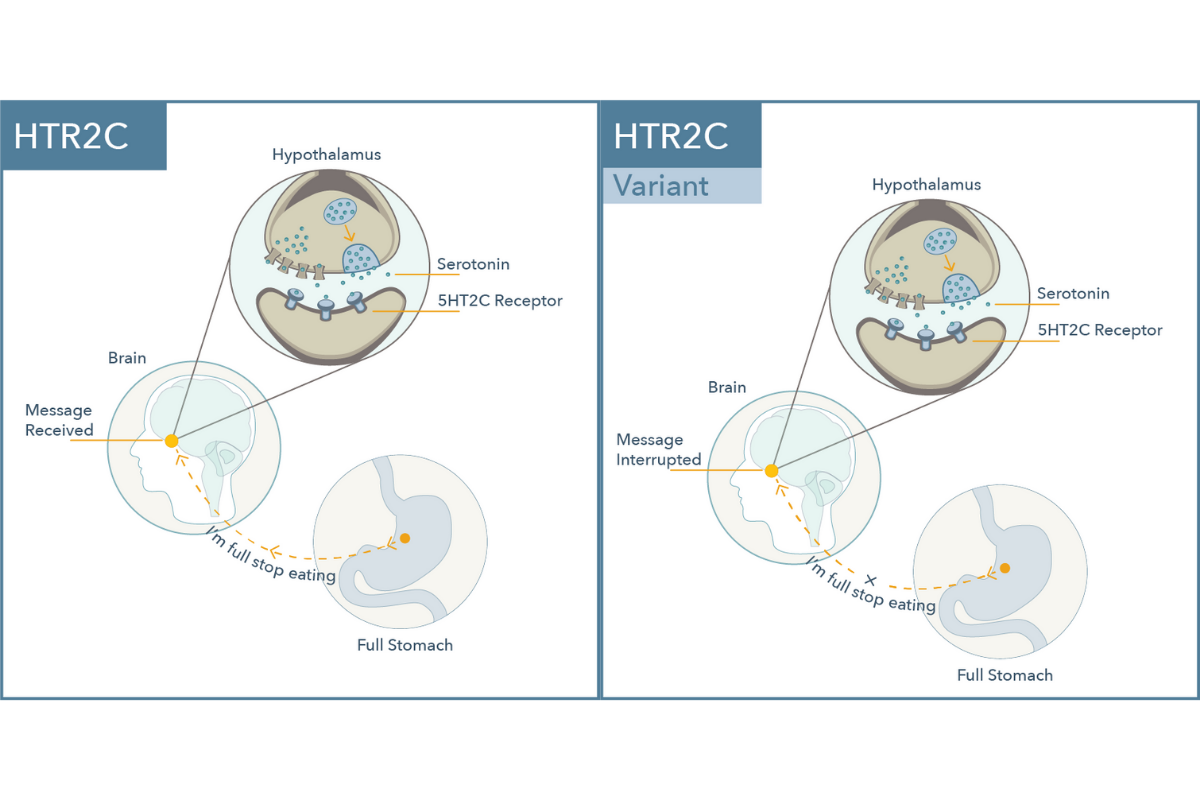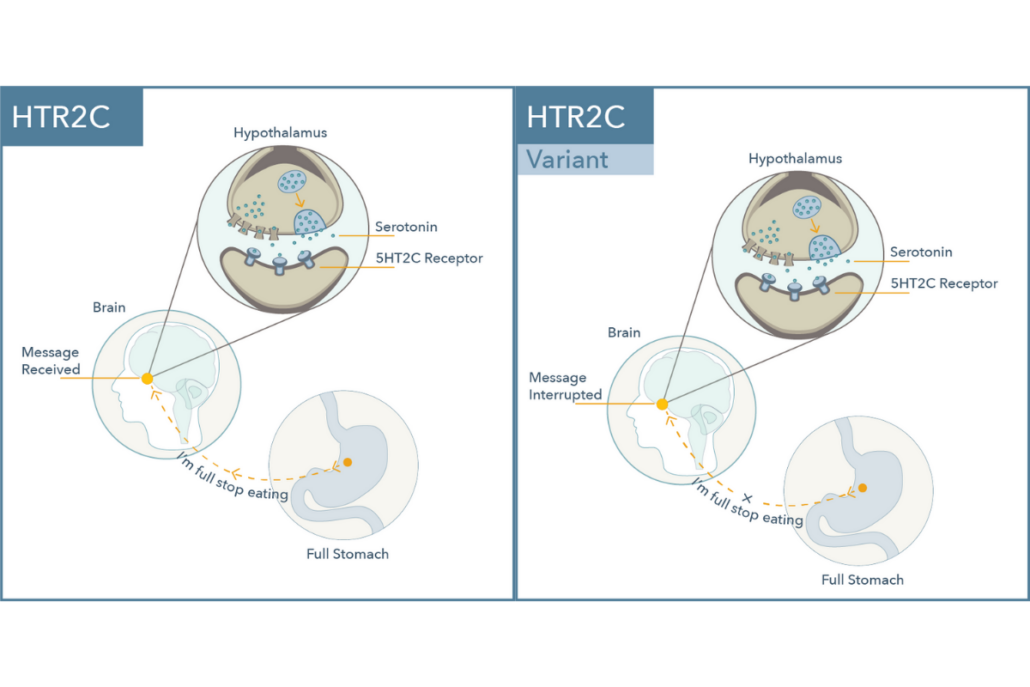The Serotonin Receptor 2C (HTR2C) encodes for the serotonin 2C receptors, a type of receptor which is blocked by some second generation antipsychotics. HTR2C is involved in the regulation of satiety, which refers to the physiological sensation of fullness, following food consumption. The risk of metabolic dysfunction with second generation antipsychotics has important implications for prognosis, as it contributes to increased morbidity, incidence of diabetes and heart disease, and decreased treatment compliance1. Since most second generation antipsychotics carry a risk of significant weight gain, the presence of a polymorphism for HTR2C is a valuable consideration when choosing a medication.

Many complex factors influence satiety regulation and the hypothalamus plays a central role, relaying and integrating information received from the environment as well as other physiological processes in the brain and body (Figure 1). Serotonin is involved in the regulation of satiety via inhibition of feeding primarily through signaling at the serotonin receptor, HTR2C2. Studies examining the effect of HTR2C modulating agents on the control of feeding behaviors in rodents show that HTR2C agonists stimulate satiety and decrease feeding behaviors, while HTR2C antagonists (such as some antipsychotics) lead to increased feeding behaviors and weight gain2-3.
Understanding genetic variations of HTR2C is useful in clinical practice to consider the biological risk factors that contribute to antipsychotic induced weight gain (AIWG). Studies have shown a correlation between the risk for AIWG and binding affinities for HTR2C receptors4. The role of HTR2C in AIWG is well studied, and systematic reviews and meta-analyses have demonstrated that patients treated with second generation antipsychotics carrying the HTR2C “T” allele are less likely to gain weight5-6. Recently, Chen and colleagues6 performed a meta-analysis examining 17 studies totaling 3,170 patients with schizophrenia and revealed a significant association between the presence of the HTR2C “T” allele and AIWG (OR=0.33, p<0.001), in that T-allele carries were less likely to gain weight with antipsychotic treatment. This significant association was also observed in subgroup analyses of 1,474 Caucasian patients (OR=0.34, p=0.01) and 1,696 Asian patients (OR=0.31, p<0.001). As results indicate that presence of a T-allele has a protective effect against AIWG, this can inform clinician decision-making regarding antipsychotic selection and monitoring.
Are You Ready to Upgrade Your Practice with Genomind?
Genomind’s pharmacogenetic testing is the most advanced and comprehensive mental health pharmacogenetic test available. Get access to 24 genes related to mental health, 130+ medications, 10+ conditions, state-of-the-art tools, and 360 degrees of support! Register today.
References
- Nasrallah HA. Atypical antipsychotic-induced metabolic side effects: insights from receptor-binding profiles. Molecular psychiatry. Jan 2008;13(1):27-35.
- Halford JC, Harrold JA. 5-HT(2C) receptor agonists and the control of appetite. Handbook of experimental pharmacology. 2012(209):349-356.
- Tecott LH, Sun LM, Akana SF, et al. Eating disorder and epilepsy in mice lacking 5-HT2C serotonin receptors. Nature 1995;374:542–6.
- Balt SL, Galloway GP, Baggott MJ, Schwartz Z, Mendelson J. Mechanisms and genetics of antipsychotic-associated weight gain. Clinical pharmacology and therapeutics. Jul 2011;90(1):179-183.
- Sicard MN, Zai CC, Tiwari AK, et al. Polymorphisms of the HTR2C gene and antipsychotic-induced weight gain: an update and meta-analysis. Pharmacogenomics. Nov 2010;11(11):1561-1571.
- Chen Y, Wang Y, Fang X, Zhang Y, Song L, Zhang C. Association of the HTR2C-759C/T polymorphism and antipsychotic-induced weight gain: a meta-analysis. Gen Psychiatr. 2020;33(3):e100192.
